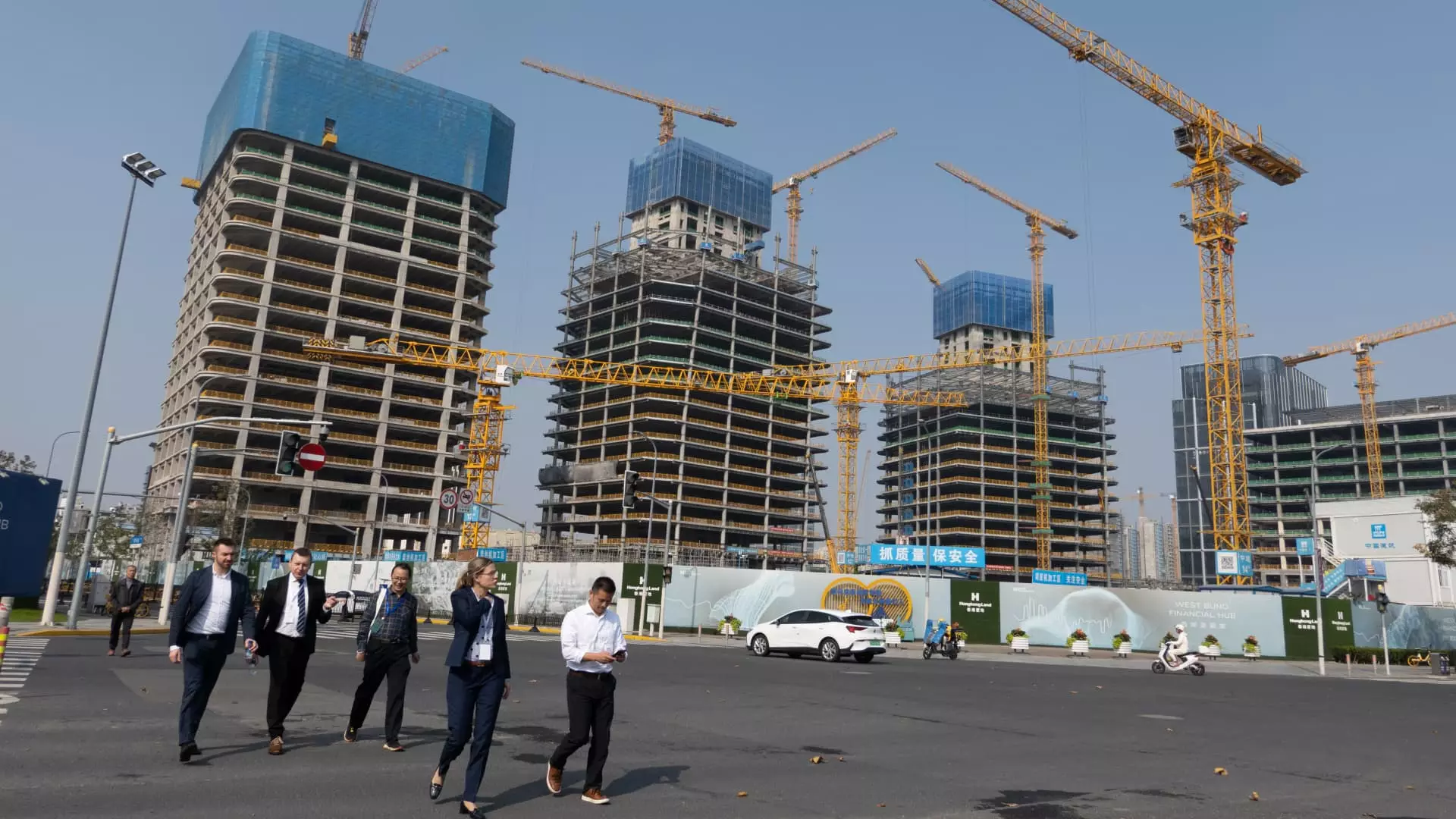In the face of a sluggish economy and growing concerns over the stability of its financial sectors, China is positioning itself for an essential economic intervention. The recent meetings of its parliament, the National People’s Congress (NPC), have sparked discussions regarding significant fiscal stimuli aimed at revitalizing the local economy. The urgency for these measures has only heightened in light of the ongoing struggles within the real estate market and the economic aftermath of global events, including the recent U.S. elections that have brought fresh uncertainties.
During the recent five-day parliamentary gathering, major discussions centered around reinforcing both fiscal and monetary support systems. President Xi Jinping’s leadership in articulating the need for these measures reflects a broader acknowledgment of the financial strain that local governments face. This economic backdrop is marked by substantial hidden debts that local governments have accrued, estimated by financial analysts to be between 50 trillion to 60 trillion yuan (approximately $7 trillion to $8.4 trillion). Such staggering debts highlight a pressing need for structural reforms rather than mere short-term fixes.
There is considerable speculation that the NPC will permit local authorities to issue more debt, which could top an additional 10 trillion yuan. This measure not only aims to swap out existing hidden debts but also provides localities the necessary liquidity to tackle their pressing budget deficits. Analysts from Nomura have projected that this change could save local governments around 300 billion yuan yearly in interest payments. However, this assistance raises fundamental questions regarding the sustainability of increasing local government debt and whether such a course of action effectively addresses deeper systemic issues.
Despite the anticipated influx of financial support, experts express caution regarding Beijing’s conservative approach. While the clear direction toward fiscal activation must be welcomed, there are concerns about the hesitance to advocate for direct consumer stimulus. Finance Minister Lan Fo’an’s recent remarks underline the importance of navigating local debt issues before embarking decisively on broad consumer support. The delicate balance between managing local government issues and stimulating consumer spending will be pivotal in determining the effectiveness of any proposed measures.
The real estate sector, a crucial segment of the Chinese economy, remains under duress. The persistent downturn in property values has severely limited the revenue streams crucial for local governments, thereby complicating their financial capabilities. The ongoing aftermath of COVID-19 has further strained these reserves, highlighting that any new restrictions or measures must consider the unique challenges pertinent to this industry.
As China prepares to unveil new stimulus measures, the effectiveness of these initiatives will hinge on their execution in a manner that not only addresses immediate fiscal concerns but also promotes long-term stability. By considering the broader implications of policy changes on local governments and economic sectors, China has an opportunity to pave the way for sustainable growth amidst an unpredictable global landscape. Monitoring the decisions made in the NPC will prove critical for investors and analysts alike as they assess the potential for recovery in one of the world’s largest economies.

Leave a Reply